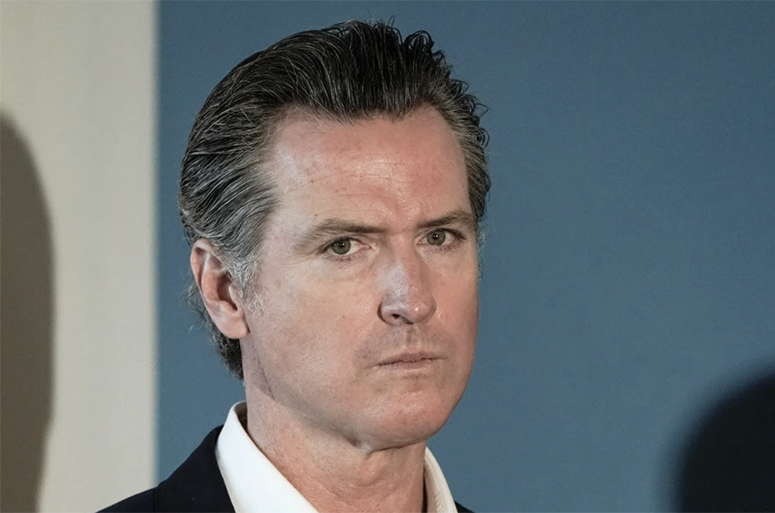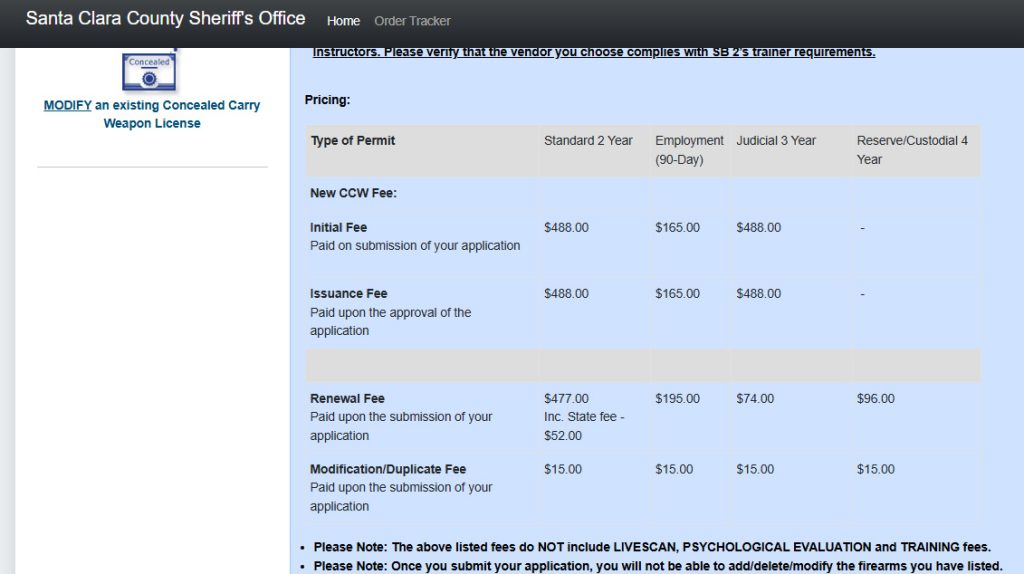
In most of the world, voting requires an ID. As John R. Lott has discussed in one of his papers, “[v]irtually all of Europe and almost all developed countries require in-person voters to use photo IDs to vote.” Here in the United States, each individual state operates its own elections, so we have a patchwork quilt of different laws. In total, 35 states require some form of ID to vote, with 22 of those requiring a photo ID.

California isn’t one of those states. In fact, when a city recently tried to implement its own voter ID laws following a majority vote of its residents to adopt such a measure, Governor Gavin Newsom and the legislature acted quickly to pass Senate Bill 1174. The bill prohibits local governments from requiring voters to present identification when casting their ballots at the polls.
In California, it’s accepted as fact by Newsom’s party that voter ID laws are racist or otherwise suspect. In a statement promoting his earlier lawsuit against the city that passed the voter ID law, California Attorney General Rob Bonta said that “[i]mposing unnecessary obstacles to voter participation disproportionately burdens low-income voters, voters of color, young or elderly voters, and people with disabilities.”
When it comes to voter ID laws, many argue that they are pointless because there is no serious amount of voter fraud. Others (myself included) respond that whether or not there is fraud, voter ID laws are worth having because they raise confidence in our elections and help to avoid the appearance of impropriety. They are the most minimal burden imaginable, as everyone in the modern era has some form of ID on hand.
But I can respect that Newsom, Bonta, and their allies in Sacramento feel very strongly about the right to vote, so much so that they don’t want even the tiniest risk of people being denied their vote, especially when it could affect “low-income voters” and “voters of color” disproportionately.
Or rather, perhaps I could have respected them…if their inaction when it comes to concealed carry permit abuses didn’t expose them as complete hypocrites.
California’s CCW permit regime
In the overwhelming majority of states, getting a CCW permit is only slightly more complicated than registering to vote. You fill out a form, perhaps submit your fingerprints, pay a fee (usually under $100), and in some states, take a training course. Permits are usually issued in no more than a couple of months, though many states issue them far more rapidly than that.
In fact, 29 states are now “constitutional” or “permitless” carry, meaning that if you can legally own a firearm, you can carry it without needing a permit though many people still opt to get one so they can carry in certain other states which honor their home state’s permit.

Suffice it to say, California is not a constitutional carry state, nor does it honor any carry permits other than its own. And unlike most other states, California issues permits on a city and county level. Sheriffs and chiefs of police are authorized to issue CCW permits directly to applicants, subject to the requirements set by the state. Before Bruen, that meant that conservative counties were effectively shall-issue. As long as the applicant jumped through the necessary hoops and passed their background check, they would get a carry permit which is valid statewide.
But in several large coastal counties and cities, the situation was far different. Regular citizens usually couldn’t get a permit. And in some of them, there was “corrupt issue” of carry permits, i.e., only the rich and well-connected qualified.
The most notorious example of this was former Santa Clara County Sheriff Laurie Smith. In 2019, The Mercury News uncovered evidence that CCW permits were issued in a “pay-to-play” fashion to those who donated money to her campaign reelection fund. Smith was later convicted of corruption for this.

Bruen changed things, to an extent. All of a sudden, counties that had denied regular citizens the right to carry had to begin issuing permits on a shall-issue basis. California’s antigun politicians, then, proceeded to try to undermine that right through two main tactics as part of Senate Bill 2:
- They tried to make getting a CCW permit pointless by making it illegal to carry everywhere it’s relevant, except for streets, sidewalks, and the few businesses willing to post a sign affirmatively allowing carry. My colleagues and I filed a lawsuit on behalf of the California Rifle & Pistol Association and other plaintiffs, called Reno May, et al. v. Bonta, to stop the law. We have partially succeeded in stopping some of its worst aspects, but the Ninth Circuit allowed several other parts of it to go into effect. The litigation is ongoing.
- The legislature decided to make a permit harder to get than before, adding increased training requirements (16 hours), provision of a minimum of three personal references, who are each also interviewed, social media searches, and more. In addition, California law has long allowed sheriffs and police chiefs to require a psychological examination if they so choose. Most jurisdictions don’t require that, but several coastal cities do, including Santa Clara, Alameda, San Francisco, and more. Before SB2 passed, state law at least mandated that this exam could cost the applicant no more than $150, and the local authority would have to pay the difference. SB2 removed that cap.
It’s critical to note here that our politicians didn’t do all of this because they feared violence would break out due to there being more people legally carrying firearms with permits. In fact, in our lawsuit against SB2, we presented data from several states demonstrating that Americans with CCW permits are overwhelmingly law abiding, and the California DOJ didn’t even try to rebut that, conceding the point. As I wrote earlier . . .
In the Bruen ruling, the Supreme Court explained that while requiring a permit for the right to carry was acceptable, “because any permitting scheme can be put toward abusive ends, we do not rule out constitutional challenges to shall-issue regimes where, for example, lengthy wait times in processing license applications or exorbitant fees deny ordinary citizens their right to public carry.”
Perhaps taking that warning as a suggestion, long wait times and high fees are exactly what several California counties and cities have put in place to undermine the right to carry.
High fees
In most of the country, fees for CCWs permits are modest. In Arizona, a CCW permit costs applicants $60. In Oregon and Nevada, it’s around $100, plus the cost of a training course. Most other states are similar.
Not so in California. Even the CCW-friendly counties in California are much more expensive than other states thanks to the minimum requirements set out by state law. For example, Riverside County, led by Sheriff Chad Bianco, charges applicants $195, plus the cost of their training course, which thanks to the new state law minimum of 16 hours for first-time applicants, will now typically cost around $200-$400 (depending on the provider the applicant selects). But Riverside, like other pro-2A counties, is what happens when the Sheriff does his best to respect the rights of his fellow citizens despite the burdensome requirements of state law. Other cities and counties have no such concerns.
The City of La Verne caught a lot of initial attention (and a lawsuit from us) because the total expense to an applicant for a CCW permit would exceed $1,000.
At the time – La Verne has since reduced some of its fees following the lawsuit – the fees consisted of $398 for “processing,” a $150 administrative fee, a $93 licensing fee, $20 for fingerprint scanning, $150 for a department-approved psychological review, an estimated $250 for an approved training course, and a $20 fee for the physical CCW card—$1,081 in total. Renewals, which for California CCW permits is every two years, would run the applicant over $600 in added expense biennially.
As bad as those fees are, things have now gotten even worse. One particularly bad actor is Santa Clara County, the very same county whose prior sheriff was convicted for corruption in connection with issuing carry permits. There, following a recent increase, applicants will now pay a $488 initial fee, a $488 issuance fee, a livescan fee (about $100), the training course expense ($200-$400), and a psychological examination fee (around $500). Applicants can thus expect to pay around $2,000 in Santa Clara to exercise their constitutional right to carry, so long as they remember to renew it every two years ($477 plus an eight hour training course).

Cities and counties with high fees argue that they are just charging their true processing expenses and not making a profit. That is difficult to believe given that most jurisdictions charge far less. But even if their claim is true, it is constitutionally irrelevant. Bruen says that what counts is whether the fees “deny ordinary citizens their right to public carry”, not whether the government is merely charging its true costs.
Clearly, an expense of $2,000 is going to deny a large amount of people their right to public carry. Probably the very same “low-income voters” and “voters of color” that Attorney General Bonta pretended to care about when discussing the potential effect of voter ID laws.
Long wait times
Even if Bruen didn’t exist, exceedingly long wait times for a CCW permit really shouldn’t be an issue in California, because the state sets a time limit in its laws. Under Penal Code section 26202(a), licensing authorities in most circumstances must approve or deny an application within 120 days.
The problem is that the law is completely ignored. Several counties and cities take over a year to issue a permit. The Los Angeles County Sheriff’s Department takes about two years, which is why we sued them as part of the same lawsuit
I referenced earlier. But before we filed that lawsuit, we had sent Attorney General Bonta a letter demanding that he enforce the time limit of the Penal Code against Los Angeles and every other issuing authority taking more than 120 days.
He never even bothered to respond to the letter. And even after our lawsuit, which he is also a Defendant in due to the issue of nonresident carry, he has still taken no action to actually enforce the Penal Code’s time limit. Clearly, this is one California law that Bonta and Newsom have no desire to see faithfully executed.
Thus, nonprofit gun rights groups like CRPA are left to try and do his job for him, through litigation.
What’s next?
Despite all their grandstanding when it comes to the modest requirements of voter ID laws, Sacramento politicians will not lift a finger when cities and counties violate the Second Amendment rights of their citizens. Bonta quickly sued Huntington Beach to stop its local voter ID law, but he refuses to enforce existing state law when it comes to the Second Amendment.
If it is “racist” to require a voter to show ID, then what do you call a CCW process that requires a police interview, training course, fingerprinting, sometimes a psychological exam, as much as two years in wait times, and up to $2,000 in expense? I’d love for Governor Newsom or Attorney General Bonta to answer that for me, but I won’t hold my breath.
We will continue to do our best in the courts. A federal judge granted us a preliminary injunction against Los Angeles’ wait times, but only as to the named plaintiffs in our lawsuit for now. And we have not yet secured relief from the court as to the high fees issue. Progress is coming, but it is slow. Thanks to California’s locally-based CCW permit issuance, we are left playing whack-a-mole, trying to make precedential caselaw even as we know we can’t possibly sue everyone.
But someone else can: President Trump’s Justice Department.
As I’ve urged before, I believe United States Attorney General Pam Bondi should launch a federal civil rights lawsuit against each and every city and county in California that’s charging excessive amounts for a carry permit, or taking too long to issue them. Failing that, they could make a high profile example out of a few of the worst offenders.
That would also be smart tactically because Newsom has asked the legislature to set aside $50 million to fund lawsuits against the Trump administration to obstruct the President’s agenda. The President should go on offense against California and there are few worthier causes to wage such a fight over than vindicating the constitutional rights of California’s long-abused Second Amendment community.
Yes, that’s a longshot. I know the new administration has a lot on its plate right now, so don’t hold your breath waiting for it to actually happen But it’s a wonderful thought.
Konstadinos Moros is an Associate Attorney with Michel & Associates, a law firm in Long Beach that regularly represents the California Rifle & Pistol Association (CRPA) in its litigation efforts to restore the Second Amendment in California. You can find him on his Twitter handle @MorosKostas. To donate to CRPA or become a member, visit https://crpa.org/.
This post was adapted by SNW from a tweet posted by Konstadinos Moros.


“In Oregon and Nevada, it’s around $100,…”
I paid only $58 for my NV non-resident CCW, relatively recently. The fees were $58 for the Sheriff Dept to process, and $100 for the training class. It all happened within a single day. The NV permit is valid for five years.
I paid literally four figures for my CA resident CCW three years ago, and it took 12 months. The permit is valid for only two years, so I renewed last year with charges totaling $650, with a process timeline of 3-1/2 months. This is a true statement. Let that sink in.
I recently discovered that I had to show photo ID to pick up my late dog’s ashes from the crematorium.